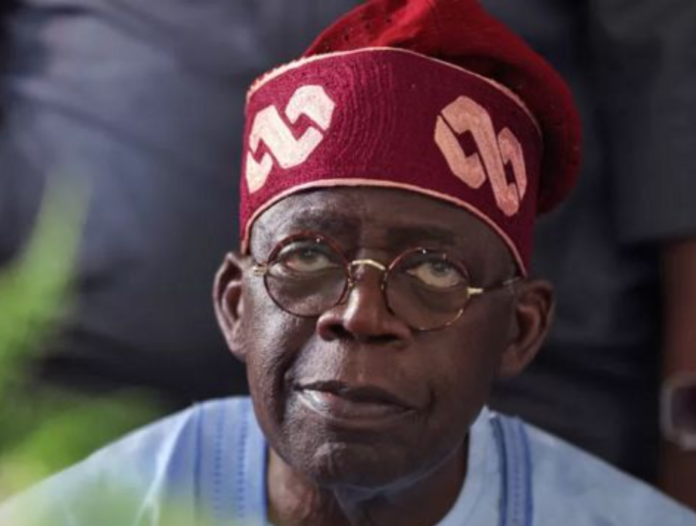On Tuesday, October 15, 2024, Nigerians were taken aback while already grappling with hunger and suffering caused by recent government policies.
The World Bank Senior Vice President, Indermit Gill, stated in Abuja that President Bola Tinubu’s economic reforms would take at least 10 to 15 years to significantly transform the economy.
He urged the Federal Government to maintain these reforms in the years ahead.
In his address at the Nigeria Economic Summit, Gill remarked, “The oil wealth that should be used for the welfare of all Nigerians has, for too long, benefited only the elites. While the reforms that began last year have hurt everyone, the elites, who have built up substantial reserves, are also feeling the impact.
“However, the average Nigerian is suffering even more, largely due to policies of the past. Nigeria must stay the course for at least another 10 to 15 years to transform the economy. It’s difficult, but the rewards will be significant.”
This statement from the World Bank sparked outrage among Nigerians, who widely rejected it. People from various walks of life warned President Tinubu that he risks facing an uprising from angry citizens if the government continues with these stinging reforms for the next decade or more.
They called on him to disregard the World Bank’s advice, citing evidence that the institution has not delivered the sustained economic growth, prosperity, or improved living standards it promised in Nigeria and other countries.
Nigeria on the Brink of Collapse – Prof. Ochonu
Moses Ochonu, a Nigerian academic and professor of African History at Vanderbilt University, U.S., warned that Nigeria is teetering on the edge of an implosion due to the extreme hardship caused by current policies.
He said, “The 10-15-year timeline of sustained hardship suggested by the World Bank is humanly impossible to bear. We may soon face a choice between death by hunger or death by social upheaval. It’s not too late for Tinubu and his government to change course and prevent this looming disaster. The World Bank’s reforms have devastated Nigeria’s middle class and worsened the situation for the poor. Tinubu’s blind allegiance to these reforms, driven by the World Bank’s neoliberal agenda, is stripping the poor of subsidies and safety nets while enriching the political elites.”
ActionAid Nigeria also condemned the World Bank’s recommendation. Its Country Director, Andrew Mamedu, stated, “The suggestion that Nigerians should endure 10-15 more years of hardship without clear plans to address the immediate needs of the people is misguided and insulting.
“The World Bank’s reforms, which include unifying the exchange rate and removing fuel subsidies, have pushed the country into extreme poverty. Millions of Nigerians cannot afford basic necessities today, and asking them to wait for over a decade for economic relief is unacceptable and inhumane.”
Mamedu emphasized the need for the government to rethink its economic policies, which have disproportionately affected the poorest Nigerians. He called for an end to the government’s reliance on the World Bank’s economic blueprint, urging a focus on local industries, small businesses, and sustainable economic models that prioritize the welfare of the people.
A Scheme to Enslave Nigeria – Activist Zik Gbemre
Zik Gbemre, a Niger Delta activist, rejected the World Bank’s advice, describing it as a conspiracy to keep Nigeria in perpetual bondage.
He noted, “We were told under the Babangida administration that devaluing the naira would end poverty, but the currency has only become more worthless since then. Nigeria’s problems are clear for all to see. Mismanagement, corruption, and appointing unqualified individuals to lead government agencies are holding the country back. The World Bank’s recommendations will not solve these issues.”
Outrage Across the Country
The World Bank’s proposal has drawn widespread criticism. Prof. Patrick Muoboghare, a former Delta State Commissioner, called the World Bank “an assemblage of first-world fraudsters exploiting the third world.”
Bayelsa CLO Chairman David West and Akwa Ibom activist Saviour Okon Akpan also denounced the World Bank’s advice, accusing the institution of advancing its interests at the expense of Nigeria’s welfare.
Economist Charles Oyo, based in Warri, argued that while the World Bank’s advice might seem reasonable on paper, it does not take into account the harsh realities on the ground.
“Nigerians are facing the most severe hardship since the country’s independence. Asking them to endure this for another decade is too much.”
Differing Opinions
Not everyone opposes the reforms. Elder Joseph Ambakederimo, convener of the South-South Reawakening Group, believes that while the reforms are painful, they are necessary for long-term economic stability.
He argued that past policies have only delayed the country’s economic recovery and that Nigerians should endure this “one-off pain” for future prosperity. He called for accountability and punishment for those who have mismanaged the country’s oil wealth.
A National Debate
The World Bank’s advice has sparked a national debate on the direction of Nigeria’s economy. While some support the long-term vision of the reforms, others believe they will only deepen poverty and suffering.
With growing calls for immediate action, President Tinubu faces immense pressure to balance international economic advice with the urgent needs of his people.
ALSO READ:

